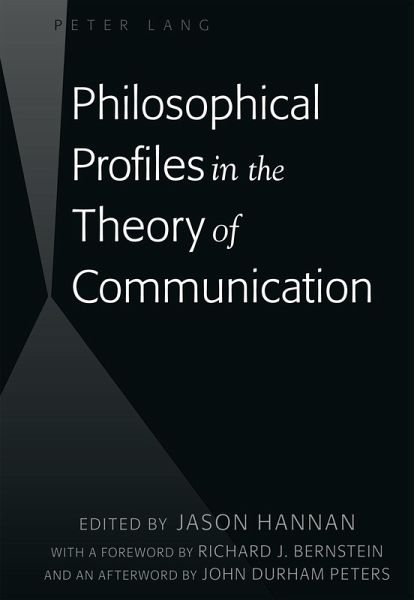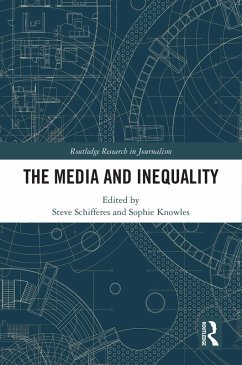
Philosophical Profiles in the Theory of Communication (eBook, PDF)
With a Foreword by Richard J. Bernstein and an Afterword by John Durham Peters
Redaktion: Hannan, Jason
Versandkostenfrei!
Sofort per Download lieferbar
86,95 €
inkl. MwSt.
Weitere Ausgaben:

PAYBACK Punkte
43 °P sammeln!
Philosophical Profiles in the Theory of Communication is the first book to draw systematic attention to the theme of communication in twentieth-century academic philosophy. It covers a broad range of philosophical perspectives on communication, including those from analytic philosophy, pragmatism, critical theory, phenomenology, hermeneutics, feminism, psychoanalysis, systems theory, and more. What emerges is a vital, long-neglected story about the theme of communication in late modern academic philosophy. Each chapter features a «profile» of a particular philosophical figure, with a brief i...
Philosophical Profiles in the Theory of Communication is the first book to draw systematic attention to the theme of communication in twentieth-century academic philosophy. It covers a broad range of philosophical perspectives on communication, including those from analytic philosophy, pragmatism, critical theory, phenomenology, hermeneutics, feminism, psychoanalysis, systems theory, and more. What emerges is a vital, long-neglected story about the theme of communication in late modern academic philosophy. Each chapter features a «profile» of a particular philosophical figure, with a brief intellectual biography, an overview of that figure's contribution to communication theory, and a critical assessment of the significance of that contribution. The clear and accessible organization of the volume makes it ideal for courses in both philosophy and communication studies.
Dieser Download kann aus rechtlichen Gründen nur mit Rechnungsadresse in A, B, BG, CY, CZ, D, DK, EW, E, FIN, F, GR, HR, H, IRL, I, LT, L, LR, M, NL, PL, P, R, S, SLO, SK ausgeliefert werden.













